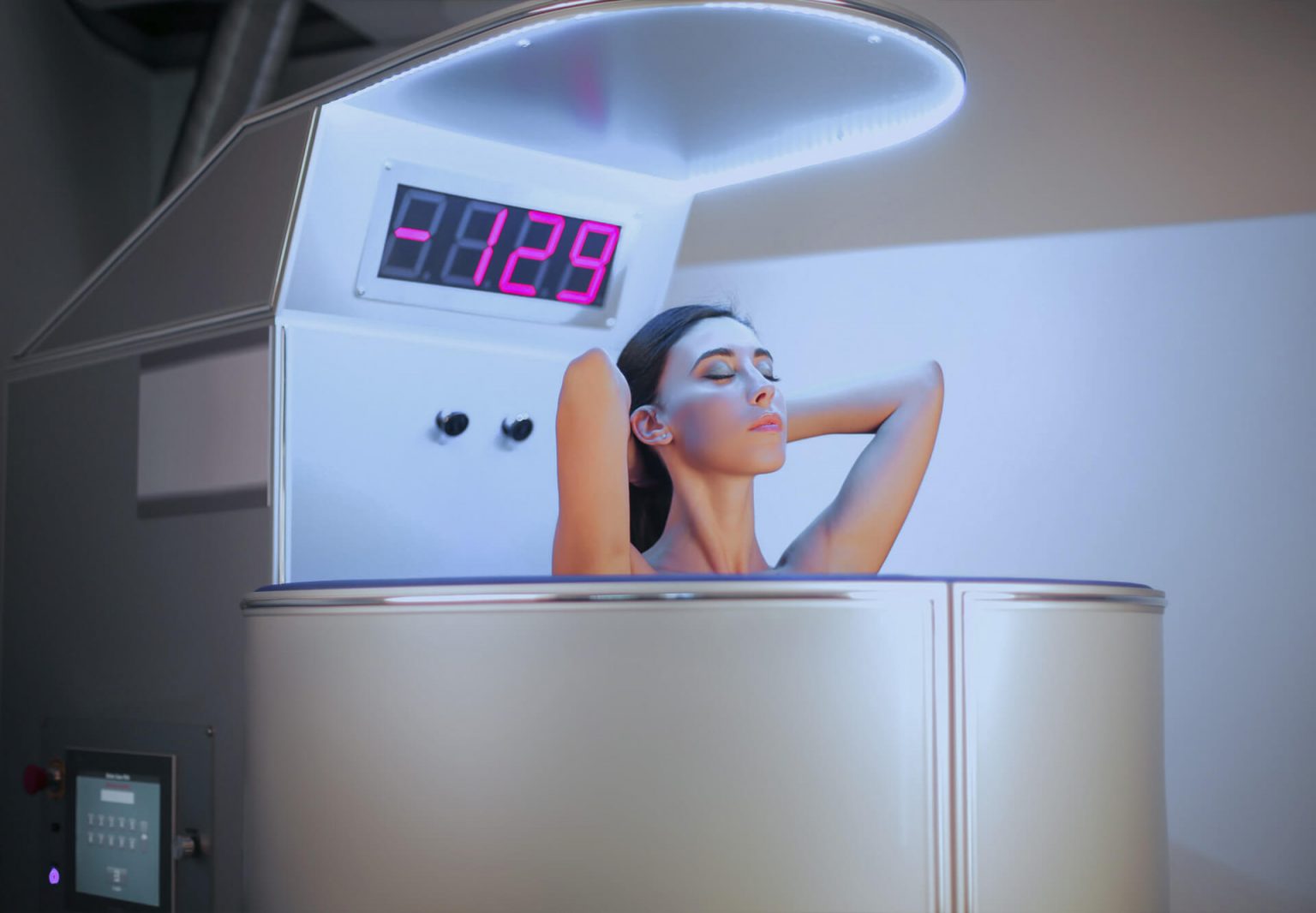Description
Cryotherapy is a technique that involves short exposures to ultra-low temperatures (between -70 and 170 degrees Celsius). The effects of cryotherapy are based on the body’s response to cooling the upper layer of the skin. The term cryotherapy comes from the Greek “kryos” meaning “cold” and therapy meaning “treatment.” During a cryotherapy session, the body surface is cooled for a short period.
What a session is like.
The first session should not last longer than 60 to 90 seconds, with a temperature of -120 to -140 degrees Celsius. The following session can be increased by 30 seconds. The number of sessions depends on the specific needs of the patient. Before the session, the patient needs to rest for 10 – 20 minutes for their body to adjust to room temperature.
Reduces migraine symptoms
Cryotherapy can help treat migraines by cooling and numbing nerves in the neck area. One study found that applying a neck wrap containing two frozen ice packs to the carotid arteries in the neck significantly reduced migraine pain in those tested. It’s thought that this works by cooling the blood passing through intra-cranial vessels. The carotid arteries are close to the skin’s surface and accessible
Numbs nerve irritation
Many athletes have been using cryotherapy to treat injuries for years, and one of the reasons why is that it can numb pain. The cold can actually numb an irritated nerve. Doctors will treat the affected area with a small probe inserted into the nearby tissue. This can help treat pinched nerves or neurones, chronic pain, or even acute injuries.
Helps treat mood disorders
The ultra-cold temperatures in whole-body cryotherapy can cause physiological hormonal responses. This includes the release of adrena- line, noradrenaline, and endorphins. This can have a positive effect on those experiencing mood disorders like anxiety and depression. One study found that whole-body cryotherapy was actually effective in short-term treatment for both.
Reduces arthritic pain
Localized cryotherapy treatment isn’t the only thing that’s effective at treating serious conditions; one study found that whole-body cryotherapy significantly reduced pain in people with arthritis. They found that the treatment was well-tolerated. It also allowed
for more aggressive physiotherapy and occupational therapy as a result. This ultimately made rehabilitation programs more effective.
May help treat low-risk tumors
Targeted, localized cryotherapy can be used as a cancer treatment. In this context, it’s called “cryosurgery.” It works by freezing cancer cells and surrounding them with ice crystals. It’s currently being used to treat some low-risk tumors for certain types of cancer, including prostate cancer.
May help prevent dementia & Alzheimer’s disease
While more research is needed to evaluate the effectiveness of this strategy, it’s theorized that whole-body cryotherapy could help prevent Alzheimer’s and other types of dementia. It’s thought that this may be an effective treatment because the anti-oxidative and anti-inflamma- tory effects of cryotherapy could help combat th e inflammatory and oxidative stress responses that occur with Alzheimer’s.
Treats atopic dermatitis and other skin conditions
Atopic dermatitis is a chronic inflammatory skin disease with signature symptoms of dry and itchy skin. Because cryotherapy can improve antioxidant levels in the blood and can simulta- neously reduce inflammation, it makes sense that both localized and wholebody cryotherapy can help treat atopic dermatitis. Another study (in mice) examined its effect for acne, targeting the sebaceous glands.





